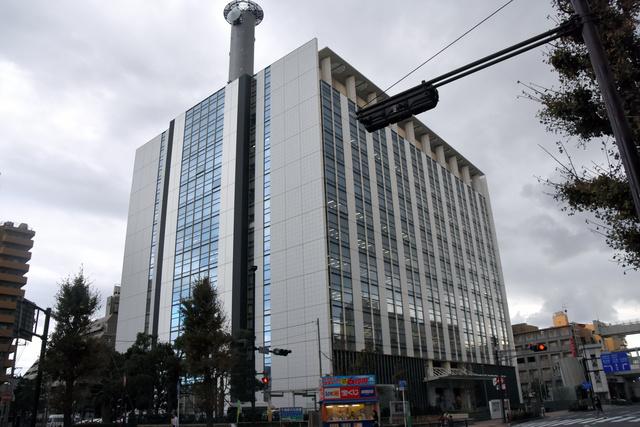Drone strike makes Persian Gulf ten...
30
04
Drone strike makes Persian Gulf tense at a stretch Japan's risk of oil dependence on the Middle East exceeding 90% |
In Abu Dhabi, the capital of the UAE in the Middle East, which has a strong image of being safe and rich in Japan, an attack drone landed near the fuel storage facility of a state-owned oil company and an international airport, and a fire broke out. Three nationals were killed. On the same day, the UAE Ministry of Foreign Affairs declared retaliation against the Houthis, a pro-Iranian armed group in Yemen, who attacked the capital Abu Dhabi. Already, Saudi-led coalition forces working with the UAE have attacked a Houthi facility in Yemen by the 21st, killing 60 people.
The Houthis have suggested retaliation against Saudi Arabia and the UAE, which have been involved in the Yemeni Civil War for many years, and in fact have repeatedly attacked Saudi Arabia with missiles and drones in recent years. Moreover, many of the targets are oil facilities, which are the heart of the Saudi Arabian economy (missiles are launched toward the capital Riyadh, and Saudi troops may shoot them down over Riyadh). For example, in November 2020, the Fushi faction launched a missile at an oil-related facility in Jeddah, the second largest city in western Saudi Arabia, damaging one oil tank owned by the state-owned oil company Saudi Aramco. In March 2021, an oil refinery in the capital Riyadh was attacked by six unmanned aircraft and a fire broke out. The attack on the oil refinery did not cause any human damage, but in Saudi Arabia. After that, Foreign Minister Faisal announced that he would take thorough measures to prevent attacks on oil facilities, etc., as attacks from the Fushi faction continued. However, in August 2019, the Houthis attacked the Shaybah field in southeastern Saudi Arabia with 10 drones, which is more than 1000 kilometers away from the Houthis-controlled areas of northwestern Yemen. It can be said that the high-performance attack capability of the Houthis is still a big threat.
The US think tank Center for Strategic and International Studies (CSIS) released a report on security in the Middle East in late December, stating that attacks on Saudi Arabia by the Fushi faction have almost doubled since 2020. .. According to the report, the average number of Fushi attacks from January to September 2021 was 78 times a month, a significant increase from the previous year's average of 38 times, and not only ballistic missiles and cruise missiles, but also cheaper ones. It is said that it is frequently used such as unmanned drones that can be manufactured at a reasonable price.

Against this background, a Fushi spokesman issued a statement by January 22, warning foreign companies operating in the UAE to withdraw as they continue to attack the UAE territory. .. This warning may be more specific, as the Houthis dominate certain territories in Yemen and are more visible than the Islamic extremists such as Islamic countries operating in Iraq and Syria. The attack is also affecting interstate relations. The Biden administration said on January 19 that it was considering redesignating the Houthis as an international terrorist organization after the Houthis attacked the capital, Abu Dhabi. The Houthis have close ties with the country, including receiving financial and military support from Iran, and the Biden administration, which aims to return to the Iran nuclear agreement, lifted the designation of the Houthis as a terrorist organization shortly after its inauguration. The background of the cancellation may have been to show a compromise to Iran, but the Houthis's hard-line stance is trying to change the direction of the Biden administration. If redesignated, relations between the United States and Iran will deteriorate again.
Japan's dependence on the Middle East for oil exceeds 90% today. Moreover, Saudi Arabia is in first place and the UAE is in second place, so there is great concern about the future situation. Moreover, the situation surrounding the Houthis has the potential risk of increasing tensions between Saudi Arabia and Iran's regional powers in the Middle East. Increasing tensions in the Middle East threaten Japan's energy security. Measures to reduce dependence on the Middle East, such as diversification of oil import destinations, will be necessary in the future.


![[Kill personally developed games] Top class in app history! Too beautiful water puzzle "a [Q] ua" | Famitsu App for smartphone game information [Kill personally developed games] Top class in app history! Too beautiful water puzzle "a [Q] ua" | Famitsu App for smartphone game information](https://website-google-hk.oss-cn-hongkong.aliyuncs.com/drawing/article_results_7/2022/3/3/66755df992ff2d2b1e1ab43844ef9f88_0.jpeg)





![[Latest in 2021] 10 recommended seat covers for cars!If you want to improve the texture and functionality of the car, choose the mounting type and material. [Latest in 2021] 10 recommended seat covers for cars!If you want to improve the texture and functionality of the car, choose the mounting type and material.](https://website-google-hk.oss-cn-hongkong.aliyuncs.com/drawing/article_results_7/2022/3/3/e5b44589e77141f3a633189165fb6f60_0.jpeg)